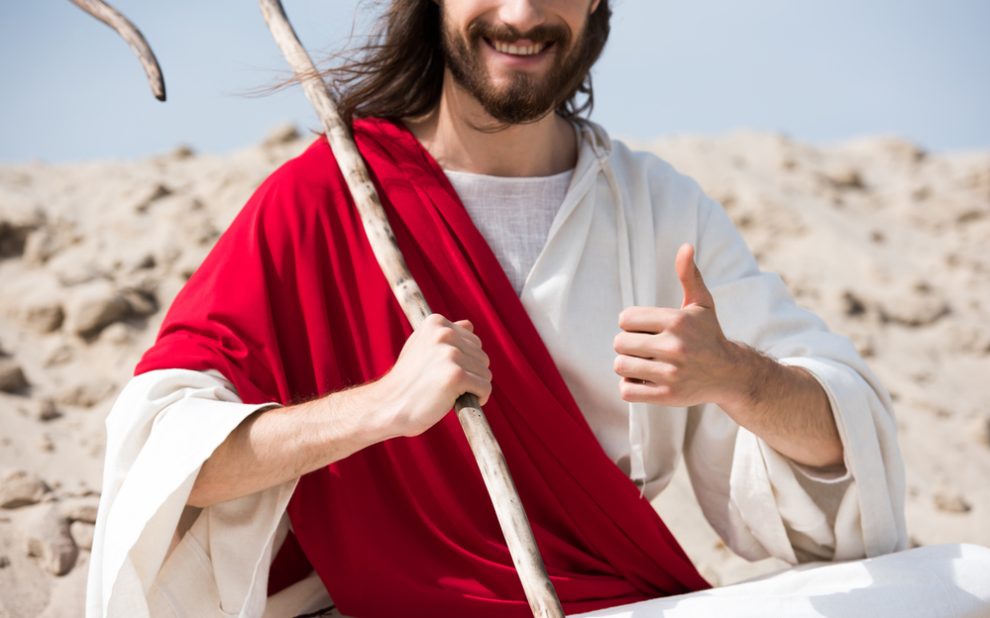The saying that “laughter is the best medicine” is not without wisdom. Laughter, goodness, beauty, and healing often go together. Yet, we Catholics rarely seem to connect God and Jesus to our human experiences of silliness and humor.
Perhaps laughter is not seen as “holy” enough. It can make people uncomfortable because it is spontaneous and its rationale sometimes is ambiguous or even malicious. But, if holiness means growing a life discipline of mediating God’s presence to others in ways that affect healing and transformation, laughter indeed can be holy. At its best, it can bring hope where there is despair, light where there is darkness.
I think Jesus shows this in his healing ministry. Some may disagree and argue that Jesus had no sense of humor because “. . . and Jesus laughed” does not appear in any of the gospels or elsewhere in the New Testament. There is no evidence in scripture to confirm that Jesus laughed. He gets angry, he weeps, he shows affection, he agonizes over his fate. And the Jesus depicted in Revelation definitely lacks a sense of humor.
But Jesus is also God, the author of life and master of the banquet. And this is the same Messiah who has friends, goes to dinner parties, and turns water into wine at a wedding. This also is the One whom the Council of Chalcedon (451) declared is both fully divine and fully human. In other words, Jesus is just like us in all ways but one: original sin. This implies that all that is authentically human can also be an echo of the divine. In the millennia since these ecumenical councils, Jesus’ full humanity has been reaffirmed countless times against heresies that would seek to “dehumanize” Jesus.
All four gospels agree that the healing ministry of Jesus is integral for understanding him, his person, and his relationship to God and God’s kingdom. Jesus offers effective healing to the sick and possessed. Perhaps laughter is part of it. Those mired in the depths of despair or the shackles of bondage often appreciate the freeing power of laughter. Laughter offers a way to retain humanity in the most inhumane situations and empowers our spirits to envision a different reality.
To laugh is human. Laughter is a natural human response to the absurdities of human life. It also can build community as we share in the joy of laughter together. Moreover, laughter teaches us not to take ourselves so seriously, even when our mission to care for others is serious. As a parent, I try to teach my children not only to learn from their mistakes but to laugh when mistakes happen due to the absurdities of life or the quirks of our own personalities. Perhaps to laugh at oneself is a form of mercy and acceptance of our humanity in the presence of God.
Doctor of the church St. Irenaeus of Lyons (c. 190 C.E.) famously observed, “God’s glory is the human person fully alive” (gloria dei, vivens homo). Notice that the good doctor doesn’t say “fully religious” or “fully solemn and serious.” No, he states God’s glory is the human person fully alive. And what human characteristic shows greater life than disarming, carefree, joyful, even prodigal laughter?
This article also appears in the September 2022 issue of U.S. Catholic (Vol. 87, No. 9, page 49). Click here to subscribe to the magazine.
















Add comment